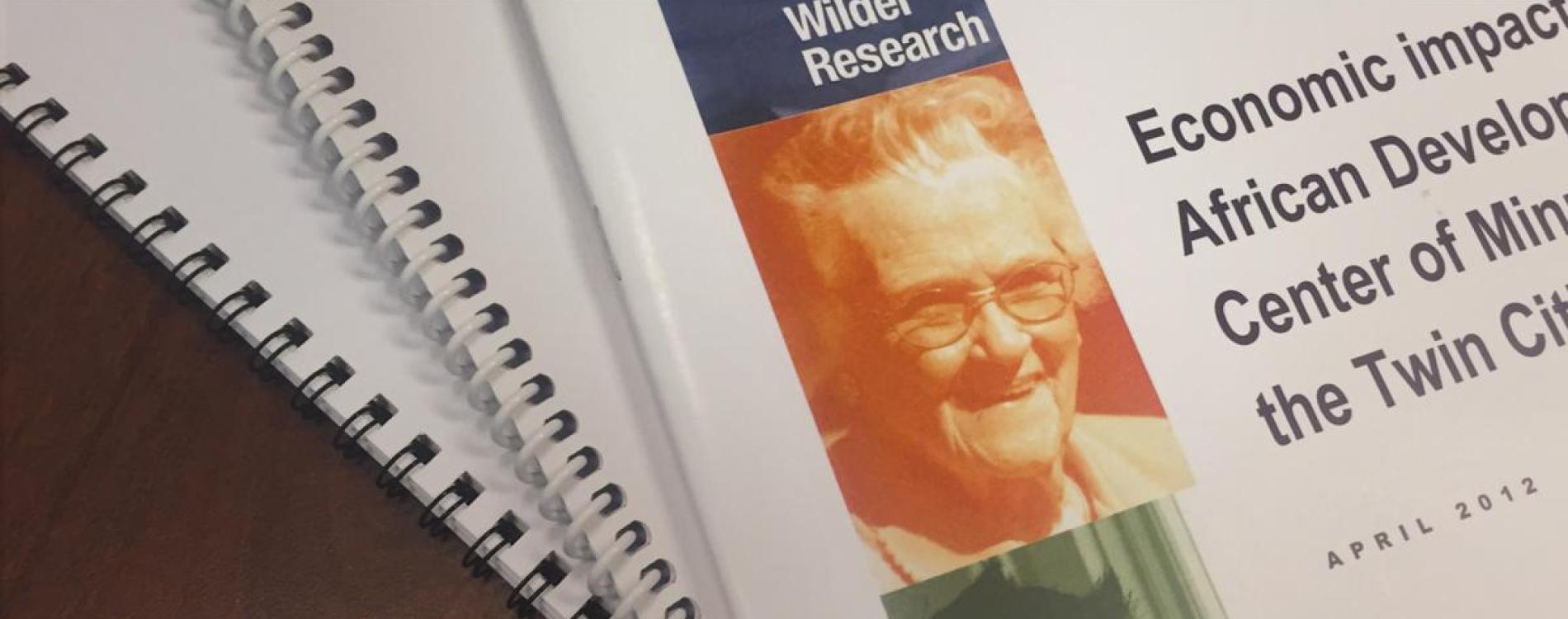As a comprehensive community developer the most important aspect of ADC is not how many programs and activities we offer, nor is it the raw number of individual clients we serve, it’s not even the number or volume of loans that we put out into some of the most under-served neighborhoods throughout the state of Minnesota. The most import aspect of ADC is our impact. Without a clear picture of how all of these services and factors are positively affecting our state, we would just be blindly going through the motions.
Since very early on, the African Development Center has understood the importance of measuring its impact, and periodically invited outside agencies to help do just that. The most recent example of this was a partnership with the very well-known and respected Amherst H. Wilder Foundation. After months of work – creating a strategy, conducting interviews, gathering data, and analyzing an unbelievable amount of information on the work of all ADC programming – Amherst H. Wilder Foundation has put together a wonderful reflection of the many ways in which ADC is not only changing the lives of its clients, but bringing about change to entire regions and communities in the state.
- When we compare the additional revenues with the value of loans, on average, every dollar borrowed from ADC generates $2.70 dollars in additional revenues.[1] This implies about $42,257 in additional revenues per loan.
- This return reaches $5 for new businesses
We invite you to review this report or scan the summary of its most impressive findings – such as:
- For every $1 invested in ADC – ADC Business Clients realize $6 in return
- A 1% increase in an ADC Loan increases gross receipts by 12%
- In 2010, ADC Businesses generated nearly $78,000 in MN tax dollars
-
In 2010, the estimated market value of homes purchased by ADC clients was $24.5 Million
- These purchases bring about an estimated property tax value of over $250,000

